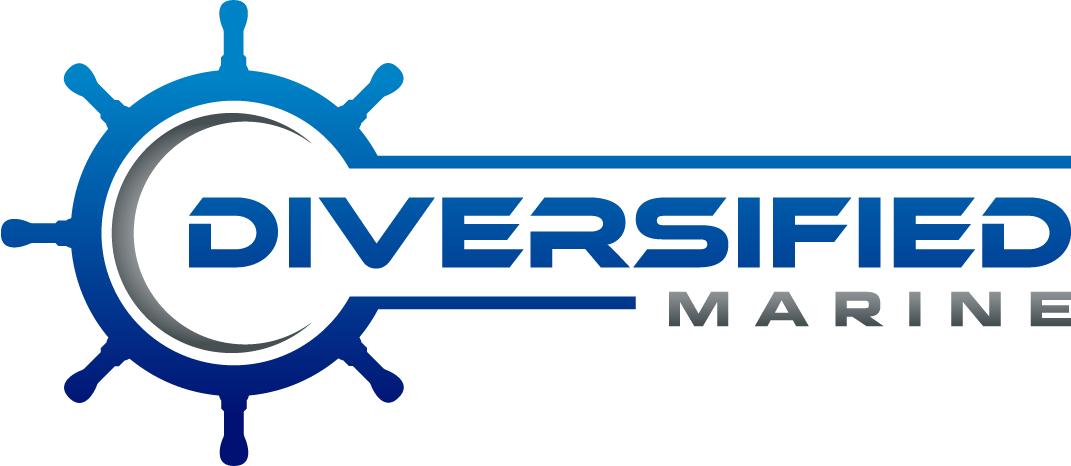Understanding Marine Vessel Maintenance: Tips and Best Practices
- Diversified Marine
- May 22, 2025
- 4 min read

Maintaining a marine vessel is about much more than ensuring its longevity. Proper upkeep directly impacts performance, passenger safety, and cost-efficiency. Whether you’re a seasoned boat owner or someone new to life on the water, staying on top of regular maintenance ensures your craft remains seaworthy and prevents costly repairs in the future.
If you're wondering where to begin or want to refine your process, this guide will provide you with essential tips and best practices to maintain your marine vessel effectively. From understanding routine checkups to tackling long-term care, we’ve got you covered.
The Importance of Marine Vessel Maintenance
Marine vessels endure harsh conditions, from corrosive saltwater to heavy-duty wear and tear. Without consistent upkeep, you risk exposing your vessel to serious issues like rust, mechanical failures, or decreased efficiency. Proper maintenance not only protects your investment but also ensures your safety out at sea.
Benefits of Regular Vessel Maintenance
Improved Performance: A well-maintained vessel operates at peak performance, offering smoother navigation and fuel efficiency.
Enhanced Safety: Inspection and upkeep help identify potential hazards before they become threats.
Cost Savings: Preventative care reduces the need for expensive replacements or emergency repairs.
Longer Lifespan: Routine maintenance can extend the life of your vessel, preserving it for years of enjoyment.
Now that you know why maintenance is critical, let's explore the best practices for preserving the condition of your marine vessel.
Tips for Routine Vessel Maintenance
No matter the type of craft you operate, following a regular maintenance schedule will help keep your boat in optimal condition.
1. Conduct Regular Inspections
Periodic inspections are key to identifying and addressing problems early. Check the following areas regularly to ensure nothing is overlooked:
Hull: Examine for cracks, blisters, or abrasions that could compromise the vessel’s structure.
Propellers and Shafts: Look for damage, corrosion, or items like fishing lines tangled around the propellers.
Deck Fittings: Ensure secure fittings, like cleats and mooring lines, for safe dock operations.
Electrical Systems: Confirm all lights, battery terminals, and wiring are functioning properly.
Performing a thorough inspection before and after every outing is a best practice for staying proactive with maintenance.
2. Flush the Engine After Every Use
Saltwater exposure can corrode your engine’s interior, leading to decreased performance and costly repairs. After every trip, run fresh water through the engine to clear out residue and protect against salt buildup. For inland waterways with freshwater, this is still a good practice to prevent dirt or debris accumulation.
Consider using a high-quality marine engine cleaner for added protection during regular maintenance.
3. Clean the Vessel (Inside and Out)
Keeping your vessel clean is about more than appearances. Dirt, algae, and mildew can erode materials over time. Here’s a breakdown of cleaning essentials:
Exterior Cleaning: Use marine-specific soap to wash the hull, deck, and windows.
Interior Cleaning: Wipe down seating, floors, and surfaces to avoid mildew or unpleasant odors.
Anti-fouling Coating: Apply anti-fouling paint to the underside to deter barnacles and algae buildup on the hull.
A clean vessel doesn’t just look great; it helps reduce long-term damage and ensures your boat stays in prime condition.
4. Check Oil and Fuel Levels
Treat your boat's engine with the same care you would a car. Regularly monitor and replace engine oil, which lubricates and protects critical components. Additionally, check your fuel lines for leaks or cracks and ensure the fuel tank is free from water contamination.
5. Inspect Safety Equipment
Your safety equipment is vital for emergencies, so keeping it functional should always be a priority. Regularly inspect these items onboard:
Life jackets and throwable flotation devices
Fire extinguishers (check their expiration dates)
First aid kits and emergency signaling devices (flares, radio, etc.)
6. Maintain the Batteries
Marine batteries are critical for starting the engine, powering lights, and running essential systems. Ensure the terminals are clean and free from corrosion, and regularly check the charge status to avoid surprises when you’re on the water.
Seasonal and Long-Term Vessel Maintenance
While routine maintenance ensures the day-to-day functionality of your boat, it’s equally important to prepare for the changing seasons and long-term decisions.
1. Winterization Best Practices
If you’re storing your boat during the off-season, winterizing ensures it stays protected until it’s ready to hit the water again.
Drain water systems to prevent freezing and cracking.
Add anti-freeze to your engine cooling system.
Remove the battery and store it in a cool, dry place.
Cover your vessel with a durable, waterproof tarp for protection.
2. Inspect and Replace Critical Components
Over time, key components wear out and need replacement. Be proactive by scheduling replacements for these parts:
Belts and hoses
Fuel filters
Anodes (sacrificial components that reduce corrosion)
3. Schedule Professional Servicing
While DIY maintenance is crucial, bringing in a professional at least once a year for an in-depth tune-up can ensure nothing goes unnoticed. Pros can perform advanced inspections, alignments, and any repairs beyond the scope of routine upkeep.
Building Knowledge Through the Boating Community
You don’t have to maintain your vessel alone! Many boating clubs and forums offer resources for marine maintenance tips and troubleshooting. Networking with other boaters connects you to seasoned professionals who can offer helpful advice.
Whether it’s learning about the latest anti-fouling solutions or the best local repair shops, tapping into the boating community equips you with invaluable insights for keeping your vessel in peak condition.
Keep Your Vessel Shipshape
Maintaining a marine vessel is a balancing act of commitment and care, but it’s an investment that pays off in both performance and safety. By following a consistent inspection, cleaning, and maintenance schedule, you’ll not only extend the lifespan of your vessel but also create memorable experiences every time you set sail.
Are you ready to start taking better care of your boat? From routine tips to professional support, there are plenty of tools and services available to assist you on this continuous adventure.
